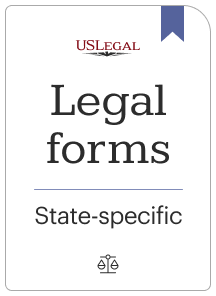

A corporate resolutionoutlines the decisions and actions made by a company's board of directors. A corporate resolution helps the corporation to remain independent from its owners by ensuring that the decisions made by the board and the corporate executives do not create a conflict of interest with the owners. California Corporate Resolution is a legal document that outlines the actions and decisions made by a corporation's board of directors or shareholders. It serves as official evidence of the authorization and approval of important matters concerning the corporation's operations, policies, or significant transactions. This document is required to formalize decisions made during corporate meetings or other situations where the corporation's management needs to collectively agree on a particular course of action. California Corporate Resolutions are integral to the proper functioning and governance of a corporation. They are typically prepared and adopted to ensure compliance with state laws and regulatory requirements, as well as to maintain the corporate structure and protect the interests of shareholders. These resolutions must be recorded and kept in the corporate records, as they may be requested by auditors, investors, or during legal proceedings. There are several types of California Corporate Resolutions that can be issued based on the specific circumstances: 1. Board Resolution: This type of resolution is typically passed by the board of directors during a board meeting. It documents decisions related to corporate matters, such as approving annual budgets, appointing officers, declaring dividends, issuing shares, approving contracts, or accepting loans. 2. Shareholder Resolution: Shareholders of a corporation may adopt this type of resolution during annual or special shareholder meetings. Shareholder resolutions usually address critical matters, such as amendments to the bylaws, determination of stock classes, mergers or acquisitions, changes to the capital structure, or removal of directors. 3. Special Resolution: A special resolution is often used for significant and enduring changes to the corporation's constitution, such as altering the company name, changing the registered office address, or modifying the articles of incorporation. This type of resolution typically requires a higher voting threshold, ensuring that substantial decisions are made with the agreement of the majority of shareholders. 4. Written Consent Resolution: In some cases, corporate decisions can be made without holding a formal meeting. Instead, directors or shareholders may provide their written consent to a resolution. These consent resolutions are used when all parties involved are in agreement and allow for efficient decision-making without convening a physical meeting. It is essential to consult legal counsel or experienced professionals when preparing California Corporate Resolutions to ensure compliance with applicable laws and regulations. Detailed documentation is crucial for maintaining the corporate records accurately, protecting the corporation's interests, and demonstrating good corporate governance practices.
California Corporate Resolution is a legal document that outlines the actions and decisions made by a corporation's board of directors or shareholders. It serves as official evidence of the authorization and approval of important matters concerning the corporation's operations, policies, or significant transactions. This document is required to formalize decisions made during corporate meetings or other situations where the corporation's management needs to collectively agree on a particular course of action. California Corporate Resolutions are integral to the proper functioning and governance of a corporation. They are typically prepared and adopted to ensure compliance with state laws and regulatory requirements, as well as to maintain the corporate structure and protect the interests of shareholders. These resolutions must be recorded and kept in the corporate records, as they may be requested by auditors, investors, or during legal proceedings. There are several types of California Corporate Resolutions that can be issued based on the specific circumstances: 1. Board Resolution: This type of resolution is typically passed by the board of directors during a board meeting. It documents decisions related to corporate matters, such as approving annual budgets, appointing officers, declaring dividends, issuing shares, approving contracts, or accepting loans. 2. Shareholder Resolution: Shareholders of a corporation may adopt this type of resolution during annual or special shareholder meetings. Shareholder resolutions usually address critical matters, such as amendments to the bylaws, determination of stock classes, mergers or acquisitions, changes to the capital structure, or removal of directors. 3. Special Resolution: A special resolution is often used for significant and enduring changes to the corporation's constitution, such as altering the company name, changing the registered office address, or modifying the articles of incorporation. This type of resolution typically requires a higher voting threshold, ensuring that substantial decisions are made with the agreement of the majority of shareholders. 4. Written Consent Resolution: In some cases, corporate decisions can be made without holding a formal meeting. Instead, directors or shareholders may provide their written consent to a resolution. These consent resolutions are used when all parties involved are in agreement and allow for efficient decision-making without convening a physical meeting. It is essential to consult legal counsel or experienced professionals when preparing California Corporate Resolutions to ensure compliance with applicable laws and regulations. Detailed documentation is crucial for maintaining the corporate records accurately, protecting the corporation's interests, and demonstrating good corporate governance practices.